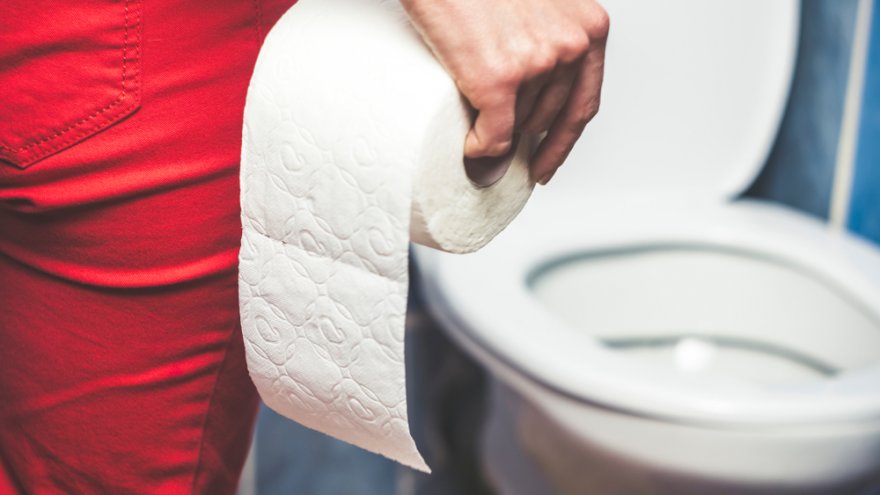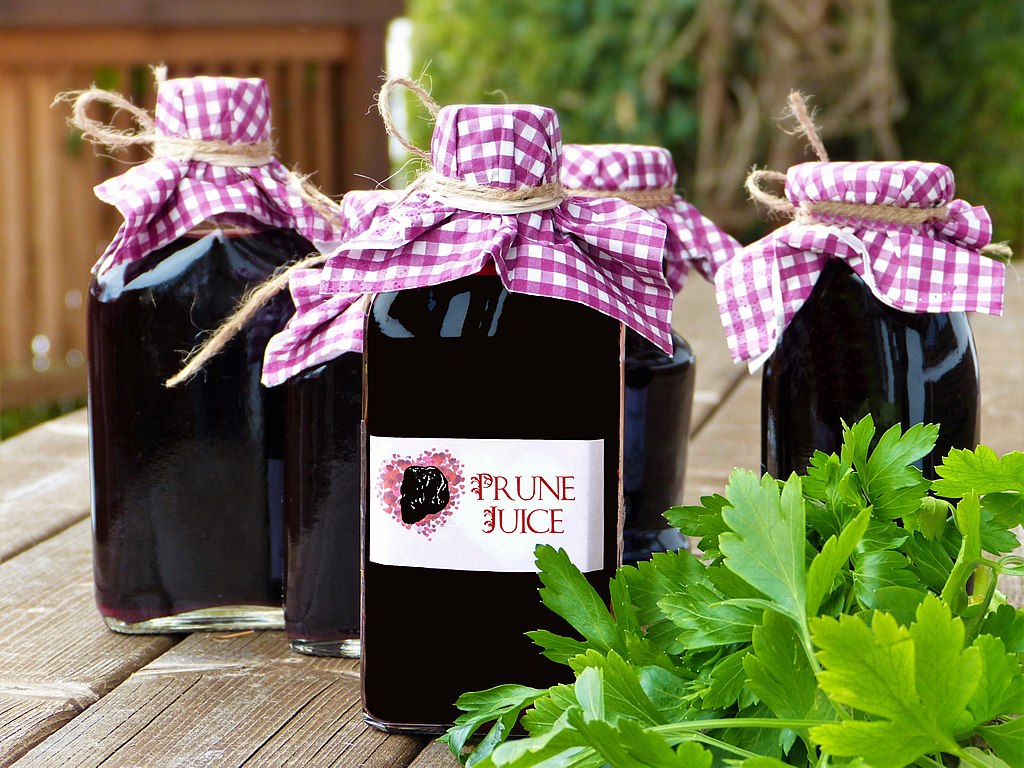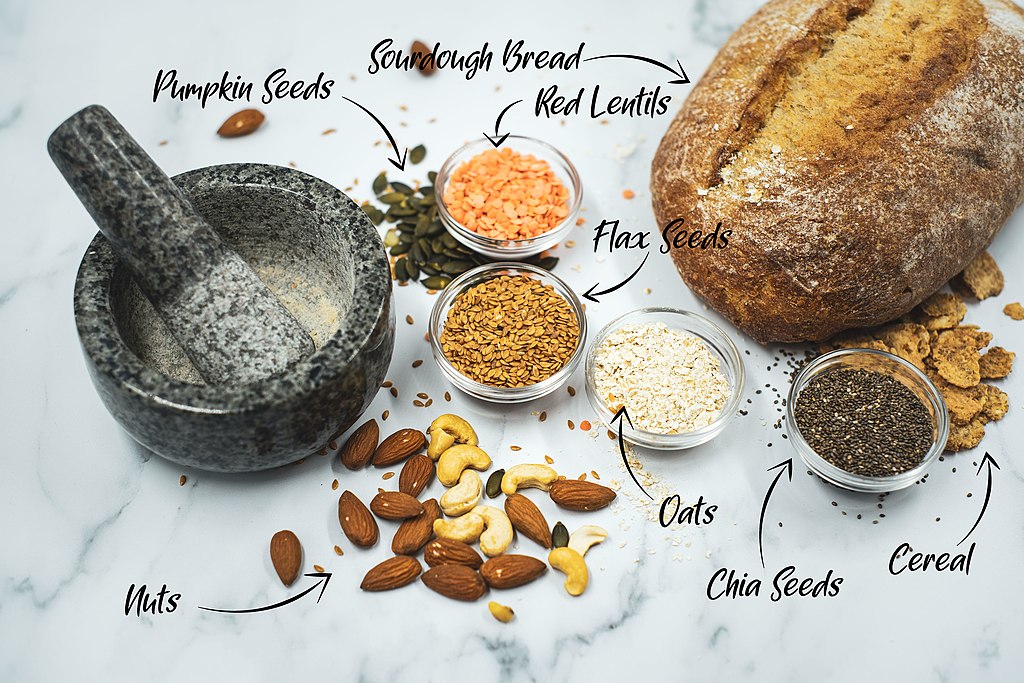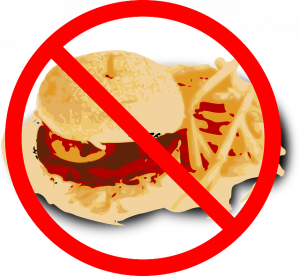4 Drinks That Make You Poop Immediately

Certain beverages have gained attention for their potential to stimulate bowel movements and relieve constipation. These include caffeinated products, aloe vera juice, prune juice, and some herbal teas.
While the topic of drinks that make you poop may not be the most glamorous, it is an area of interest for those seeking natural remedies or temporary relief from constipation.
From traditional remedies to modern concoctions, we looked at various beverages known to have a laxative effect, helping to alleviate discomfort and promote a healthy digestive system.
So, let’s dive into the world of drinks that can get things moving in your gut!
4 Best Natural Laxatives
There are several options to consider when it comes to drinks that may have a laxative effect. Natural remedies, such as herbal teas and fruit juices, have long been used to promote bowel movements.
1. Coffee and Caffeinated Beverages
Caffeine is a naturally occurring stimulant in a cup of coffee, tea, and energy drinks. For a long time, it has been associated with stimulating bowel movements. The exact reason caffeine promotes bowel movements is not yet fully understood, but several theories have been proposed.
One possibility is that caffeine stimulates the muscles in the gastrointestinal tract, including the colon, to contract. These contractions, known as peristalsis, help move the stool through the digestive system more quickly, reducing the time it stays in the colon and potentially preventing constipation.
Caffeine may also increase the production of certain hormones and neurotransmitters, such as cholecystokinin and serotonin, which can affect gut motility and promote bowel movements. These substances can influence muscle contractions and coordination in the digestive tract, aiding in the elimination process.
It’s worth noting that while caffeine can have a stimulating effect on the bowels for some individuals, it may not have the same impact on everyone. Tolerance to caffeine can vary, and excessive consumption may lead to other digestive issues or disturbances.
2. Herbal Teas
For many years, herbal teas have been used for their potential laxative properties, and a few specific varieties are known to have notable effects.
Here are some herbal teas known for their laxative effects:
- Senna tea, derived from the leaves of the senna plant, contains compounds called anthraquinones that stimulate bowel movements.
- Dandelion tea, made from the dandelion plant’s roots or leaves, has traditionally been used to support digestion and promote regularity.
- Peppermint tea, known for its soothing properties, may help relax the gastrointestinal tract muscles, potentially aiding in smoother bowel movements.
It is important to exercise caution when using herbal teas as laxatives and to use them in moderation. Overuse or prolonged reliance on herbal teas for regularity may lead to dependency or other complications.
3. Prune Juice
Prune juice is renowned for its potential to relieve constipation, primarily due to its high sorbitol content. Sorbitol is a natural sugar alcohol that acts as an osmotic laxative, meaning it draws water into the intestines, softening the stool and promoting bowel movements.
Drinking the right amount of prune juice can be an effective natural remedy for constipation. The recommended serving size is typically around 4 to 8 ounces (120 to 240 ml) of prune juice, but individual tolerance may vary. It is advisable to start with a smaller serving and gradually increase it if needed while monitoring the body’s response.
Don’t forget to be mindful of potential side effects associated with prune juice. Consuming excessive amounts of sorbitol can lead to bloating, gas, and diarrhea. Using prune juice in moderation is key to avoiding unpleasant digestive symptoms.
If you have a medical condition, such as chronic constipation, irritable bowel syndrome (IBS) or fructose intolerance, you may be more sensitive to sorbitol and should exercise caution or consult a healthcare professional before incorporating prune juice into your diet.

4. Aloe Vera Juice
Aloe vera juice is thought to have the ability to promote digestion and relieve constipation. It is believed to be soothing to the digestive system thanks to its natural anti-inflammatory properties. It is possible that aloe vera juice could play a role in reducing inflammation in the gastrointestinal tract, aid in healing ulcers, and support overall digestive health.
It’s important to remember to be cautious when consuming aloe vera juice. Not all products on the market are of the same quality, and some may contain additives or preservatives that could be harmful or diminish the potential benefits.
Choosing pure, high-quality aloe vera juice from reputable sources is essential, or preparing it directly from fresh aloe vera gel to ensure its purity.
Does Protein Make You Poop?
In the fitness world, protein is often discussed for its benefits in muscle gain, maintenance, and recovery. Some people even think getting enough protein is a great way to keep bowel movements regular, but this may be more wishful thinking than fact.
Protein does not directly affect bowel movements, but eating enough protein can indirectly contribute to healthy digestion and regular bowel movements. Protein is important for maintaining muscle health, including the muscles in the digestive system.
Smooth muscle contractions in the intestines help move food through the digestive tract, facilitating bowel movements. So by eating enough protein to keep your muscles healthy, you can also keep your digestive system healthy.
Let’s talk fiber. Protein itself does not contain fiber but many protein-rich foods, such as legumes, whole grains, nuts, and seeds (especially chia seeds), are also good sources of dietary fiber. Fiber adds bulk to the stool and promotes regularity by helping it move through the digestive system more efficiently.
While protein does not necessarily help you poop, it definitely does not hurt. Being regular is often a result of having overall healthy body functioning, and eating a protein-rich diet can contribute to that.

Does Apple Juice Make You Poop?
Many people want to know the answer to this question, and the truth is the effect of apple juice on your bowels may vary from one person to the next.
Apple juice is made from the fruit of apples. While it does contain some amount of fiber, which is thought to help you poop, the fiber in the juice is significantly lower compared to a whole apple.
The fiber in apple juice comes from soluble fiber content. The juicing removes a significant portion of the insoluble fiber, resulting in reduced overall fiber content. That being said, the impact of apple juice on bowel movements may be less pronounced than eating the whole fruit, and for some people could be a result of the fructose in the juice rather than the small amount of fiber.
To optimize the benefits of fiber for promoting bowel regularity, consuming a balanced diet with a variety of fiber-rich foods, including fruits, vegetables, whole grains, and legumes, is recommended. You should also drink plenty of water throughout the day, as fiber works more effectively when combined with adequate fluid intake.
6 Factors Affecting Digestion
Various factors beyond specific foods or nutrients influence digestion. By paying attention to these various factors, you can help promote healthy and regular digestion.
Factors that can impact digestion and bowel movements:
1. Fiber Intake
Adequate fiber intake is crucial for maintaining regular bowel movements. Both soluble and insoluble fiber adds bulk to the stool, promote smooth movement through the digestive tract, and prevent constipation.
Consuming a variety of fiber-rich foods like fruits, vegetables, whole grains, legumes, and nuts can support optimal digestion.
2. Hydration
Staying hydrated is essential for healthy digestion. Sufficient water intake helps soften the stool, aids in the absorption of nutrients, and supports the smooth passage of waste through the intestines.
Drinking plenty of water throughout the day is recommended, especially when consuming a high-fiber diet. A commonly cited guideline is to aim for about 8 glasses of water per day, which is equivalent to approximately 64 ounces or 2 liters.
3. Overall Diet
The overall composition of your diet plays a significant role in digestion. Consuming a balanced diet that includes a variety of whole foods, including lean proteins, fruits, vegetables, whole grains, and healthy fats, provides essential nutrients and supports proper digestion.
Avoiding excessive intake of processed foods, saturated fats, and sugary items can help maintain digestive health.
4. Eating Habits
Eating habits, such as the pace of eating, portion sizes, and frequency of meals, can impact digestion. Eating slowly and chewing food thoroughly aids in proper digestion and nutrient absorption.
Consuming smaller, frequent meals instead of large, heavy ones can promote better digestion and prevent discomfort.
5. Stress Levels
Stress can significantly affect digestion. When stressed, the body’s response can disrupt digestive processes, leading to issues like slowed digestion, bloating, or changes in bowel movements.
Practicing stress-management techniques like exercise, meditation, or relaxation exercises can support healthy digestion.
6. Physical Activity
Regular physical activity promotes overall digestive health. Exercise stimulates muscle contractions in the intestines, aiding in food movement through the digestive system. It can also help alleviate constipation and improve overall gut function.
What Foods Can Cause Constipation?
Several foods can potentially contribute to constipation. Here are some examples:
- Low-fiber foods: Foods low in fiber include processed foods, refined grains (white bread, white rice), and certain dairy products (cheese, ice cream).
- Dairy products: Some people are lactose intolerant, meaning they have difficulty digesting lactose, a sugar found in dairy products. This can lead to constipation in those individuals.
- Red meat: Eating excessive amounts of red meat, especially when it’s heavily processed or high in fat, can slow down digestion and contribute to constipation.
- Fried and fatty foods: Foods high in fat, such as fried foods, greasy fast food, and fatty cuts of meat, can be challenging to digest and slow down the movement of stool through the digestive system.
- Processed foods: Highly processed foods, including packaged snacks, ready-to-eat meals, and processed meats, are typically low in fiber and high in unhealthy fats and additives. They can disrupt normal bowel movements.
- Unripe bananas: While ripe bananas can actually help alleviate constipation due to their fiber content, unripe or green bananas can have the opposite effect.
- Fast foods and convenience foods: Fast foods and pre-packaged convenience meals often lack adequate fiber and contain high levels of unhealthy fats, preservatives, and additives, all of which can contribute to constipation.
- White rice and refined grains: Unlike whole grains, white rice and refined grains have had the fiber-rich outer layers removed during processing. This results in a lower fiber content, which can lead to constipation.
The Takeaway
Several factors play a crucial role in digestion and bowel movements. In addition to specific foods, factors such as fiber intake, hydration, overall diet, eating habits, stress levels, and physical activity significantly influence digestion.
Adequate fiber intake promotes regular bowel movements, while proper hydration supports the smooth passage of waste. A balanced diet consisting of whole foods ensures optimal digestion. Eating slowly, managing stress, and engaging in regular physical activity further support healthy digestion.
Understanding and incorporating these factors into your lifestyle can improve digestive health. Listening to your body and seeking professional advice for specific concerns or persistent issues is important.
Latest Articles
 Is Running on a Treadmill Easier Than Running Outside?Runners have their own preferences, whether it is treadmill running, running outside on the road, or exploring trails. So...
Is Running on a Treadmill Easier Than Running Outside?Runners have their own preferences, whether it is treadmill running, running outside on the road, or exploring trails. So... Is It OK to Use Trail Running Shoes on the Road?While trail running shoes can be used on roads, especially in situations where a runner encounters mixed terrains or pref...
Is It OK to Use Trail Running Shoes on the Road?While trail running shoes can be used on roads, especially in situations where a runner encounters mixed terrains or pref... How to Fix Sore Quads After Running?Rest, ice, gentle stretching, and over-the-counter pain relievers can help soothe sore quads after running. Also, ensure ...
How to Fix Sore Quads After Running?Rest, ice, gentle stretching, and over-the-counter pain relievers can help soothe sore quads after running. Also, ensure ... 10 Fruits With The Most Electrolytes to Replace Sports DrinksThese fruits are high in electrolytes such as potassium, magnesium, and calcium, essential for hydration, muscle function...
10 Fruits With The Most Electrolytes to Replace Sports DrinksThese fruits are high in electrolytes such as potassium, magnesium, and calcium, essential for hydration, muscle function...

